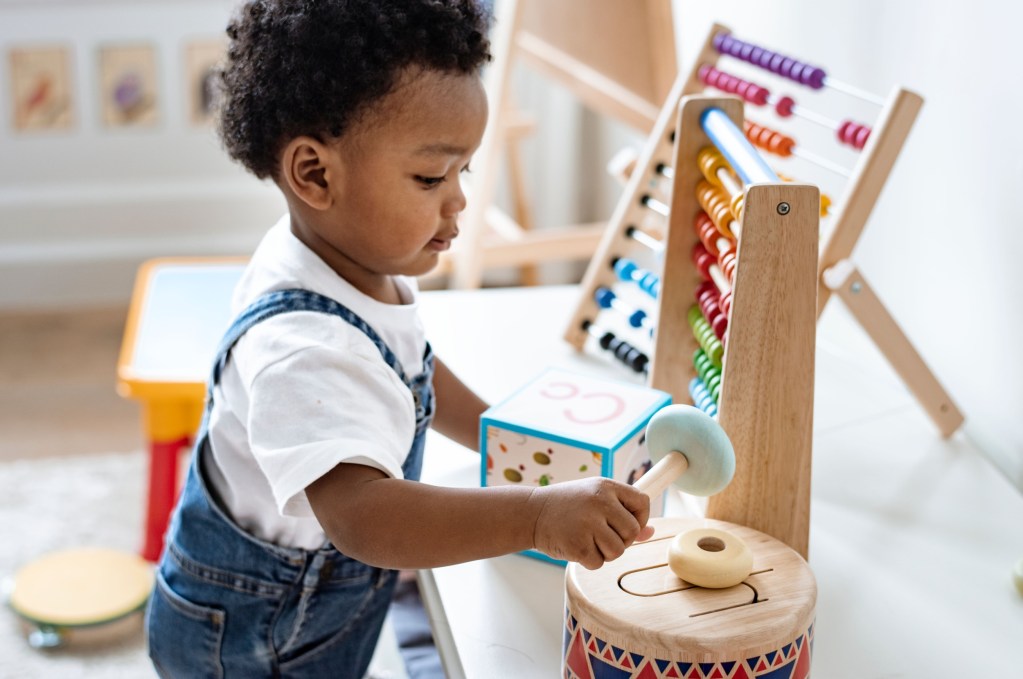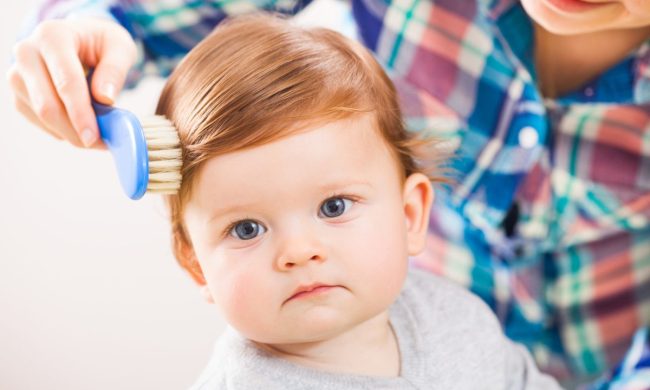The Centers for Disease Control and Prevention (CDC) has found that about 1 in every 36 children has been identified with autism spectrum disorder. If your child is on the spectrum, the initial diagnosis can be upsetting, but early intervention following a diagnosis is vital. The early signs of autism in toddlers, though, can be easy to overlook. If you have a child you think might be on the spectrum, it’s best to know the early signs as your toddler develops.
There is a long list of possible signs as the autism spectrum is wide and diverse. One sign may appear in one child, but not in another. Certain early signs of autism are more common than others, which is why knowing the red flags is important. The earlier a child receives a diagnosis, the better the support system will be for them.
Understanding autism

Autism is defined by the CDC as a “developmental disability” characterized by “differences in the brain.” This neurodevelopmental disorder typically shows up in the toddler stage and is lifelong. People with autism spectrum disorder or ASD often struggle with social interactions and communication, along with behavioral challenges.
Kids with ASD also learn differently than their peers. Adults and children with autism have varying levels of ability, which makes understanding ASD difficult. Some may be nonverbal, while others are able to communicate easily. Others may require daily care and assistance with everyday tasks, while some do not. As children with ASD grow, the symptoms and obstacles may change.
Diagnosing autism is a challenge for doctors. Since there isn’t one specific cause for autism spectrum disorder, diagnosing it isn’t as simple as taking an x-ray to see if a bone is fractured. Pediatricians make a possible diagnosis of autism based on a child’s outward behavior and development. A pediatrician will typically refer a child to a specialist if the diagnosis is suspected. Some toddlers are diagnosed as early as 18 months, while parents may not learn their child has ASD until he or she is a tween or older. Early intervention for autism spectrum disorder is key, which is why recognizing the early signs in toddlers is important.
Early signs of autism in toddlers

As parents, we wait for those exciting milestones of development in toddlers. Of course, everything they do is adorable, but some things, and the absence of certain achievements, may be red flags for autism in toddlers. If you notice one or two in your tot, it doesn’t automatically mean they are autistic. Here are some of the early signs of autism in toddlers to be aware of and bring to the attention of your pediatrician.
Common signs of autism to look out for
Just like people with autism spectrum disorders are very different, so are the symptoms. This is why diagnosing a child with ASD now requires several steps. Here are the most prevalent signs.
- Makes little or no eye contact or doesn’t keep eye contact.
- Has difficulty with change or transition from one activity to another.
- Finds comfort in routines.
- May be obsessed with a few specific activities, doing them repeatedly every day.
- Repeats exactly what others say without understanding the meaning.
- Rocks or walks on their toes for a long time, or flaps their hands.
Signs of autism by age group

The toddler stage begins following your child’s first birthday. While every child develops at his or her own pace, there are certain developmental milestones doctors are on the lookout for. This is why when you bring your child to the pediatrician for wellness visits at nine, 18, 24, and 30 months, a developmental screening is conducted.
The American Academy of Pediatrics recommends an autism screening be conducted on patients at 18 and 24 months. Here are early signs of autism in toddlers broken down according to age group.
Toddlers at age 1
The signs of autism are often first recognized between 12 and 24 months. Not reacting to or engaging in a game like peekaboo could be an initial sign of autism in a toddler. At 12 months old, a child who could be autistic might not turn to look when you call their name (even after you repeat it multiple times) but will respond to other sounds.
You might notice your 1-year-old not showing any (or little) reaction to your facial expressions or your smile when you are trying to get them to smile back. Similarly, if you regularly try to get them to look at an object by pointing or looking at it yourself and they don’t, this could also be a red flag.
Toddlers at age 2
Socially, autistic 2-year-olds may not notice how others feel. Verbally, they might not speak any single words by 15 months or any two-word phrases by 24 months. If they regress in their language or social milestones between 15 and 24 months, that could be an indicator as well.
According to the American Academy of Pediatrics (AAP), a child with autism who is 18 months old might only say words they have just heard or only repeat what they hear on TV. This is different than a child with delayed speech who tries to compensate for the delay with gestures, pointing, and facial expressions to get you to understand. A toddler with autism does not make those attempts.
The AAP also states a child with autism who is 24 months old might bring you something to play with, but they don’t look at your face when they bring it to you. The child does not show signs of pleasure when playing with you.
Toddlers at age 3
If your 3-year-old has trouble making friends, doesn’t understand making appropriate facial expressions, or doesn’t seem to cry when in pain, it’s important to take note. These are all potential signs of autism spectrum disorder. They might play with one part of a toy instead of the whole toy, like just spinning the wheel of a toy truck.
A toddler might not engage in any pretend play, such as taking care of a baby doll or disliking taking part in games involving taking turns.
Risk factors for autism spectrum disorder

While there is still a great deal doctors and scientists do not understand about autism, there are risk factors involved when it comes to early signs of ASD in toddlers. There isn’t just a single cause that determines whether or not a child is autistic. The CDC states that certain components may put children at risk for ASD. Those factors could be biological, genetic, or environmental. Research has shown some determinants may put a child in a higher risk category for autism.
Having a brother or sister with autism spectrum disorder or older parents are two risk factors for developing autism. Experiencing complications at birth is also another indicator that puts a child a risk for autism. Children with genetic disorders such as Fragile X syndrome fall into a higher risk category since one in three people with the syndrome are also autistic.
Early detection is key

Although children tend to show signs of ASD between the ages of 12 and 18 months, experts state that most children aren’t officially diagnosed until the age of 3. A big reason for this is that parents don’t know the signs to look for, and therefore, aren’t bringing it to the attention of their doctor for assessment. Early detection and intervention can make a big difference for children with ASD.
This is why the AAP is recommending that children between the ages of 18 and 24 months be screened for autism in addition to their regular developmental and behavioral screenings during their routine doctor appointments at 9, 18, and 30 months. Experts also suggest that children who receive early intervention services for their ASD diagnosis have improved skills in communication, socialization, and behavior compared to those who do not receive early intervention.
When to consult your doctor

Autism is more and more common these days as we understand more about it. Remember though it is also not uncommon for children to develop in their own unique ways and at their own pace. Don’t stress yourself out over every early sign of autism in your toddler. Your pediatrician will conduct autism screenings as a part of your child’s well visit, but always consult your doctor if you suspect that your child might be on the spectrum. Then, a more thorough evaluation can be made.
As a parent, live your life and let your child live theirs. Not every quirk or difference your child has compared to another kiddo is a sign of autism. Even if your mini human is autistic, there’s no longer the giant stigma that used to be attached to ASD. Thanks to the increasing support from groups on social media, it is easier than ever to find your tribe if your child is on the spectrum. The main reason to pay attention to the early signs of autism in toddlers is to get intervention as soon as possible.




